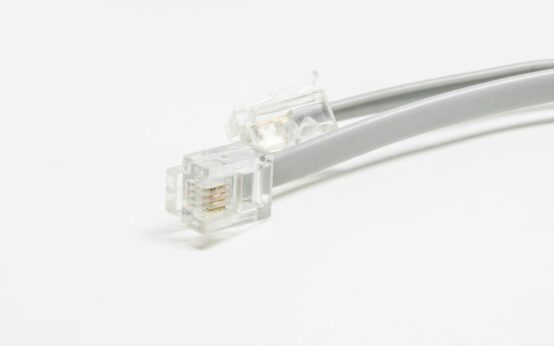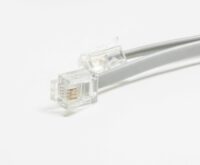A Guide to DeFi Insurance Protocols
Decentralized Finance (DeFi) has revolutionized how we interact with financial instruments, offering unprecedented opportunities for earning, lending, and borrowing. However, this exciting new frontier comes with its own set of risks. Smart contract vulnerabilities, exploits, and unforeseen bugs can lead to significant financial losses. That’s where DeFi insurance protocols step in, providing a safety net for your valuable crypto assets.

Why is DeFi Insurance Necessary?
The DeFi ecosystem, while innovative, is built upon complex code. Smart contracts, the backbone of DeFi, are susceptible to bugs and vulnerabilities. High-profile hacks and exploits have demonstrated the real-world consequences of these risks, resulting in millions of dollars lost. DeFi insurance aims to mitigate these risks, offering a layer of protection for users.
Different Types of DeFi Insurance
- Smart Contract Cover: This type of insurance protects against losses caused by vulnerabilities or bugs in a specific smart contract.
- Stablecoin Cover: This protects against the de-pegging of stablecoins from their intended value (e.g., $1).
- Custodial Cover: This covers losses due to hacks or mismanagement by centralized custodians.
- Exchange Cover: This protects against losses from hacks or insolvency of centralized cryptocurrency exchanges.
How DeFi Insurance Works
DeFi insurance protocols operate on various models, including:
- Risk Pooling: Users contribute to a shared pool of funds, and payouts are made from this pool to those who suffer losses.
- Decentralized Autonomous Organizations (DAOs): Insurance decisions are made by a decentralized community of token holders.
- Coverage Underwriting: Some protocols use actuarial science and data analysis to assess and underwrite risk.
Investing in DeFi is inherently risky. Insurance is a critical component of any risk management strategy.
Choosing the Right DeFi Insurance Protocol
Selecting the right protocol requires careful consideration. Here are key factors to consider:
- Coverage Options: Does the protocol cover the specific risks relevant to your investments?
- Premium Costs: Are the premiums competitive and affordable?
- Claim Process: How efficient and transparent is the claims process?
- Security Audits: Has the protocol undergone rigorous security audits by reputable firms?
- Community and Reputation: What is the reputation of the protocol within the DeFi community?
Key Players in the DeFi Insurance Space
Several prominent projects offer DeFi insurance solutions. These include Nexus Mutual, Cover Protocol, InsurAce, and Bridge Mutual. Each protocol has its unique features, coverage options, and risk assessment methodologies. It’s essential to research each platform thoroughly before making a decision.
The Future of DeFi Insurance
DeFi insurance is a rapidly evolving landscape. As the DeFi ecosystem matures, we can expect to see more sophisticated insurance products, improved risk assessment models, and greater integration with other DeFi protocols. The growth of decentralized insurance is crucial for fostering trust and encouraging wider adoption of DeFi.
Navigating the complexities of DeFi requires a prudent approach. By understanding the role and importance of DeFi insurance, you can confidently participate in this exciting new financial paradigm while mitigating potential risks.
Frequently Asked Questions about DeFi Insurance
What are the limitations of DeFi insurance?
Like traditional insurance, DeFi insurance has limitations. Coverage may not extend to all types of risks, and claim payouts can be subject to certain conditions.
Is DeFi insurance regulated?
The regulatory landscape for DeFi insurance is still developing. It’s important to stay informed about any regulatory changes that may impact these protocols.
How can I learn more about specific DeFi insurance protocols?
Researching individual protocols is crucial. Review their documentation, community forums, and independent reviews to gain a comprehensive understanding.
Remember, this guide is for informational purposes only and does not constitute financial advice. Always conduct your own research and consult with a financial advisor before making any investment decisions.



 Backtest Crypto Trading Strategies: A Complete Guide
Backtest Crypto Trading Strategies: A Complete Guide  NFT Standards: A Cross-Chain Guide for Creators & Collectors
NFT Standards: A Cross-Chain Guide for Creators & Collectors  Decentralized Storage: IPFS & Arweave Explained Simply
Decentralized Storage: IPFS & Arweave Explained Simply  How to Calculate Cryptocurrency Taxes: A Simple Guide
How to Calculate Cryptocurrency Taxes: A Simple Guide  Your Guide to Music NFTs & Top Platforms for 2024
Your Guide to Music NFTs & Top Platforms for 2024  TradingView for Crypto: The Ultimate Trader’s Guide
TradingView for Crypto: The Ultimate Trader’s Guide  Backtest Crypto Trading Strategies: A Complete Guide
Backtest Crypto Trading Strategies: A Complete Guide  NFT Standards: A Cross-Chain Guide for Creators & Collectors
NFT Standards: A Cross-Chain Guide for Creators & Collectors  Decentralized Storage: IPFS & Arweave Explained Simply
Decentralized Storage: IPFS & Arweave Explained Simply  How to Calculate Cryptocurrency Taxes: A Simple Guide
How to Calculate Cryptocurrency Taxes: A Simple Guide  Your Guide to Music NFTs & Top Platforms for 2024
Your Guide to Music NFTs & Top Platforms for 2024  TradingView for Crypto: The Ultimate Trader’s Guide
TradingView for Crypto: The Ultimate Trader’s Guide